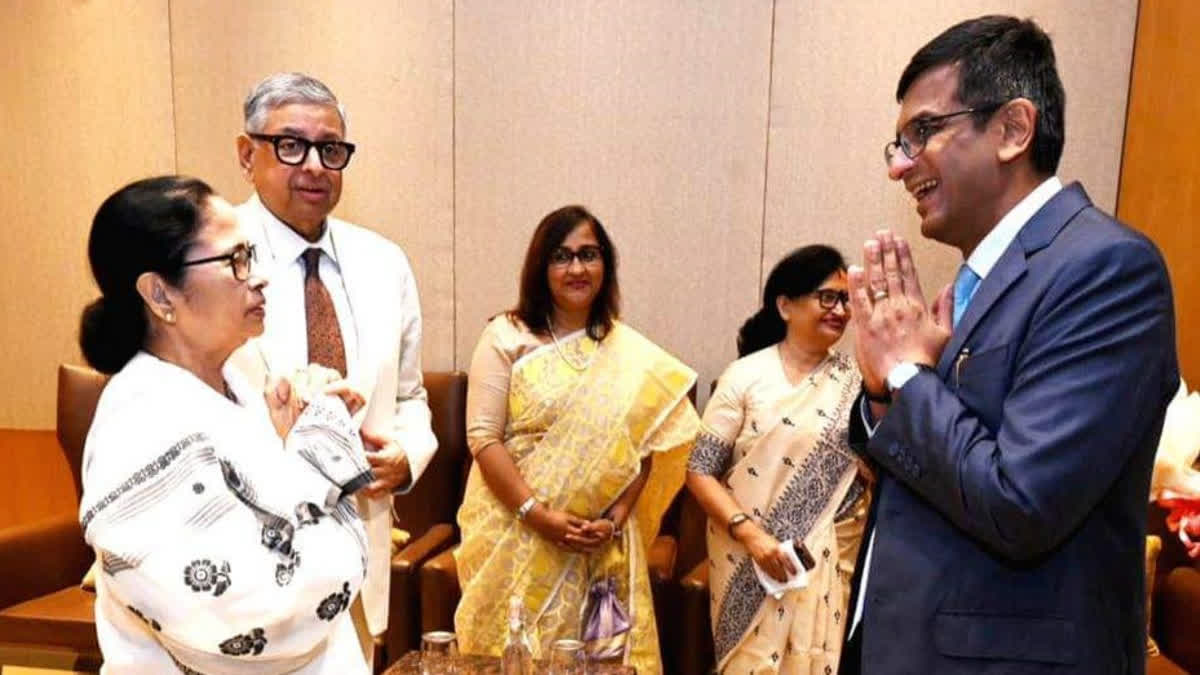Kolkata:Maintaining that "constitutional morality" is a restraining factor on the state, Chief Justice of India D Y Chandrachud on Saturday said it allows for conditions that respect diversity, promote inclusion and pursue tolerance.
He said that India does not exist only in large cities, but it goes down to the smallest village and the smallest taluka across the nation, connected or not, accessible or otherwise. CJI Chandrachud said "constitutional morality", unlike morality, which he said is a restraint on the rights of citizens, is a restraining factor on the state.
Constitutional morality addresses itself to every component of society and allows for conditions which "respect diversity, promote inclusion and pursue tolerance, he said, delivering the keynote address at the two-day East Zone II regional conference of the National Judicial Academy. The CJI said it also imposes a duty on the state to facilitate the achievement of the kind of society that the Constitution envisages.
"The Constitution uses the expression morality, but it does not use the expression constitutional morality," he said. CJI Chandrachud said the Constitution allows for restrictions to be imposed by law on the right to freedom and expression on various grounds, including morality. He said the Constitution also contemplates that restrictions can be imposed on the right to freedom of association on grounds of morality.
At one level, constitutional morality is founded in the values which the Constitution's Preamble sets out, he said. "Constitutional morality is an overarching principle which is derived from, but is not confined to, specific rights or values which are enshrined in the Constitution," CJI Chandrachud said. According to him, it gives a unifying constitutional ethic so that every Indian citizen can think and speak as he wishes to, worship as they intend to, follow whoever they want to, eat what they want to and marry whoever he or she wants to or not marry at all.
When judges are addressed as 'Honor', Lordships' or Ladyships', there is a grave danger that "we perceive ourselves as the deities in those temples since the people say the court is a temple of justice, he said. The CJI said he would rather recast the role of the judge as server of the people, thus bringing in the notion of compassion and empathy.
He said that these concepts of constitutional morality are key for not just the judges of the higher judiciary, but also for the district judiciary as engagement of common citizens begins at this level. It is being increasingly found that judges write about their own ideologies in judgments, CJI Chandrachud noted. He said personal perceptions of a judge as to what is right or wrong must not override constitutional morality.
"Please remember that we are servants of the Constitution, we are not masters of the Constitution," the CJI said. He said a just society cannot be a reflection of a judge's imagination, but it is what the Constitution has envisaged. "That is a society which is based on human dignity, fraternity, equality, liberty, respect for all, tolerance for all and inclusion for all," said CJI Chandrachud.
